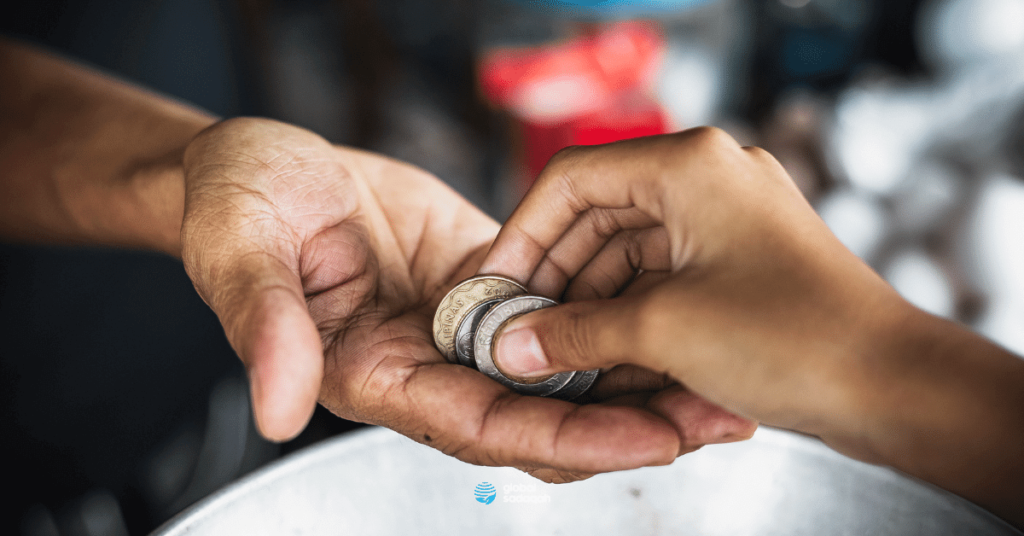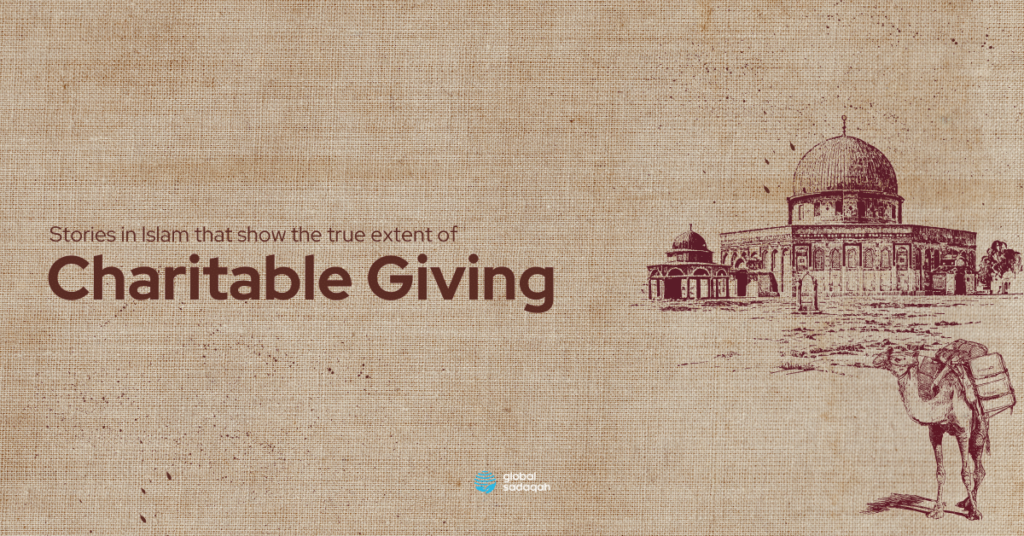In Islam, sadaqah or charity is a recurring pattern in the stories as told in the Hadith, and Islamic values are closely in line with the various attributes of social welfare and social finance in today’s world.
In some ways, it is clear why charitable giving is such a prominent theme in Islam.
For one, this life is not comparable with the hereafter, yet we often yearn for a strong attachment to this world.
Philanthropic activity paired with an intention that is tied to your faith or Iman can help alleviate this desire and help you focus on your true objectives as a Muslim.
Here are a few more prominent excerpts from reliable sources depicting the true extent of charitable giving and its importance in Islam.
Related: Important Points on Sadaqah Jariyah
Yusuf on Khalil: Ibrahim was Allah’s best friend for his generosity
Tahir reported: Yusuf ibn Asbat, may Allah have mercy on him, said, “It reached me that Allah Almighty revealed to Abraham, upon him be peace: Do you know why I have taken you as an intimate friend? It is because you give to people and take nothing in return.”
Source: Ḥilyat al-Awliyā’ 8/242
The stories and lives of Allah’s Messengers are always an excellent example for our lives today. As a result, learning to comprehend their unique life wisdom would be really beneficial to us.
Ibrahim, known in the Hebrew Bible as Abraham, was given the title ‘ خليل الله’ KHALILULLAH’, which means ‘Allah’s companion.’ All of the main revealed religions hold Ibrahim (A.S.) in high regard as the forefather of many great Prophets.
One of the main reasons why he’s considered a close friend to Allah, was because he gave without expecting anything in return, according to the above report. Surely this is a stark reminder of how we should all be following in Ibrahim’s footsteps in this regard as a way to grow closer to Allah.
Charity in Islam: “The believer’s shade on the Day of Judgement will be his charitable acts”

The Holy Prophet (ﷺ) has narrated:
“The believer’s shade on the Day of Judgement will be his charitable acts”
Nothing feels better than the act of giving, which serves as a reminder that all we have in this world is immaterial and was never ours to begin with. Be like the Prophet (ﷺ) and never forget the importance of charitable giving in Islam; not only will your acts of kindness benefit you, but they will also benefit those around you.
The left hand shouldn’t know what the right is doing.

In Islam, charity is regarded as one of the most beneficial activities. The act of charity, according to Allah and his Prophet Mohammed (ﷺ), is great and should be practised on a regular basis. There are various Ahadith on the importance of charity, as well as ayat from the Quran that state unequivocally that providing charity is a virtuous and wonderful act in Allah’s eyes.
When it comes to charity, however, care is advised, as evidenced by the adage that the left hand should not know what the right hand is up to.
Prophet Muhammed (ﷺ) once said:
“There are seven whom Allah will shade on the Day of Judgement…”
He went on to mention six of them and finally concluded by saying:
“…A man who gives in charity and hides it, such that his left hand does not know what his right hand gives in charity; and a man who remembered Allah in private and so his eyes shed tears.” (Abu Hurairah & collected in Saheeh al-Bukhari (English trans.) vol.1, p.356, no.629 & Saheeh Muslim (English trans.) vol.2, p.493, no.2248)
The Hadith’s final section, as indicated above, sends a powerful message to all of humanity. It serves as a reminder that we, as people, must recognise the difference we can make and the motivations behind it. Many of us have lost sight of the true purpose of charity, and as a result, we are donating with the wrong intentions.
Hadith on Da’wah: Pillars of Islam, all else voluntary

Talhah ibn ‘Ubayd reported: A man came to the Messenger of Allah, peace and blessings be upon him, from the people of Najd. His hair was unkempt and his loud voice was heard, which could not be understood until he came closer. He was asking about Islam.
The Prophet said, “There are five prayers in a day and night.” The man said, “Is there anything else I must do?” The Prophet said, “No, unless you do so voluntarily.” The Prophet said, “And fasting the month of Ramadan.” The man said, “Is there anything else I must do?” The Prophet said, “No, unless you do so voluntarily.” The Prophet mentioned Zakat and the man said, “Is there anything else I must do?” The Prophet said, “No, unless you do so voluntarily.” The man turned back and he was saying, “By Allah, I will never add to this or lessen it.” The Prophet said, “He has succeeded if he is truthful.”
Source: Ṣaḥīḥ al-Bukhārī 46, Ṣaḥīḥ Muslim 11
This is another unique story about a strange man who met with the Prophet (ﷺ) seemingly looking for answers about what he must do to succeed in Islam. The Prophet (ﷺ) then proceeded to tell him about the pillars of Islam – the necessary things that must be done in order to follow the way of Islam.
In the end, the Prophet (ﷺ) mentioned Zakat which is in fact a charitable act that is considered compulsory in the eyes of Islamic law. The strange man confessed that he would do all these things – no more, no less – and the Prophet (ﷺ) confirmed that he would be successful just by doing that.
This reiterates the importance of the pillars of Islam, including the charitable practice of Zakat.
In Islam, Charity will not decrease wealth

Abu Hurairah (R.A.) narrated Allah’s Messenger (ﷺ) as saying: “Charity does not in any way decrease the wealth and the servant who forgives, Allah adds to his respect; and the one who shows humility, Allah elevates him in the estimation (of the people).” [Muslim Vol. 4, Hadith 6264]
In respect to this excerpt, there are different kinds of charity or sadaqah in Islam that we should familiarise ourselves with. The first is Sadaqah from what you earn. The second is Sadaqah by giving to others as aid, and the third is Sadaqah by abstaining from evil deeds or performing good deeds.
Abu Musa narrated that the Prophet (ﷺ) said, “Every Muslim has to give in sadaqah (charity).” The people asked, “O Allah’s Messenger (ﷺ)! If someone has nothing to give, what will he do?” He said, “He should work with his hands and benefit himself and also give in charity (from what he earns).” The people further asked, “If he cannot do even that?” He replied, “Then he should help the needy who appeal for help.” Then the people asked, “If he cannot do that?” He replied, “Then he should perform all that is good and keep away from all that is evil and this will be regarded as charitable deeds.” [Bukhari Vol. 2, Hadith 524]
There are plenty more parts throughout the many Hadith that mention or include some notion regarding charity. This is how prevalent the idea of charitable giving is in Islam, and these excerpts show a glimpse of that reality.

